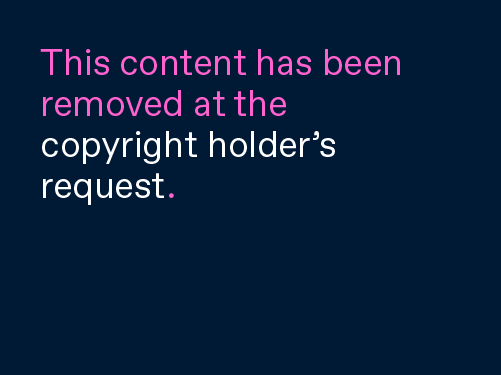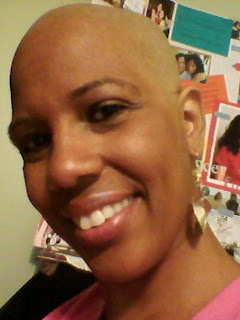Pinkin’ Ain’t Easy
Big pinkin’, you spendin’
Gs
Ya think you’re backin’ a
cause
Meanwhile you spreadin’
disease
You wanna be sure
that your runnin’ for
cures
And you're not pinkwashed and
pimped like a whore
Rethink pink and not
get pimped
You gotta rethink pink
don’t get pimped
Before I was diagnosed with breast cancer in January
2012, the pink ribbon inundation secretly irked me. I found the entire
phenomenon suspicious and unsettling. But then out of guilt, I would buy the
pen, USB drive or whatever trinket being shilled for the cause at the cash
register. How could I as a woman not support breast cancer awareness and
prevention and quite possibly contribute to research for a cure?
Looking back I realize how little the relentless commercialism did for my own awareness. On the contrary, it made me want to NOT think deeply about breast cancer. The attempt to dress the illness in a traditional femininity and promote consumerism as the path to its eradication repelled me.
Looking back I realize how little the relentless commercialism did for my own awareness. On the contrary, it made me want to NOT think deeply about breast cancer. The attempt to dress the illness in a traditional femininity and promote consumerism as the path to its eradication repelled me.
After my diagnosis I did start to investigate, and
being a long-time activist, my research eventually led to the unique politics
of breast cancer philanthropy and what is referred to by its critics overall as
pink ribbon culture. I am still reflecting where I land along the spectrum
between pink ribbon culture and its feminist detractors, and that surely will
be the topic of a future post or two. I am clear, however, that what I
discovered about the way breast cancer is pimped by corporations in ways that run counter to the stated goal of ending the disease
made me actively pursue a distance that I already felt from this juggernaut of
which I was supposed to be a beneficiary.
And I certainly did benefit from Susan G. Komen’s successful fundraising efforts. At the time of my diagnosis, I was uninsured so I went to Planned Parenthood for my reproductive health care. If not for PPNYC and the funding it received from SGK, I might not have been able to get a mammogram, detect the invasive ductal carcinoma in my left breast or even secure insurance and therefore treatment through the the Medicaid Cancer Treatment Program.
And I certainly did benefit from Susan G. Komen’s successful fundraising efforts. At the time of my diagnosis, I was uninsured so I went to Planned Parenthood for my reproductive health care. If not for PPNYC and the funding it received from SGK, I might not have been able to get a mammogram, detect the invasive ductal carcinoma in my left breast or even secure insurance and therefore treatment through the the Medicaid Cancer Treatment Program.
Then SKG lost is mind and temporarily defunded Planned
Parenthood on the advice of its former senior VP for public policy who was intent on imbuing
the organization with her pro-life politics. That Handel chick was slick, I’ll give her
that. Nice tactic to suggest that the impetus to not fund organizations that
provided abortions was to stay remain within federal funding policy. Close but no
cigar even if it has a pink ribbon emblazoned on the wrapper.
Hence, my hot little letter to the SKG calling out the
fact that their decision to defund PP effectively signaled that they only cared
about finding a cure for women who were insured and told the rest of us we
could just drop dead. Yeah, I went there. I even wrote, “Neither Planned
Parenthood nor cancer asked me what my position on abortion was, and neither
should you.”
This is also not to say that there aren’t things about
so-called pink ribbon culture that don’t resonate with me. But this branding of
the cause that raises so much money for anything BUT the cure? No, ma’am, don’t
expect me to register for your race any time soon.
 Here’s the ironic thing about the color pink; its choice
was probably one of the few things SGK did right. As I learned from watching
the documentary Pink Ribbons, Inc.
which is based on the book of the same name by Dr. Samantha King, the original
breast cancer awareness ribbon was salmon. When the woman who created it refused
to get into bed with the foundation, SKG actually asked women with breast
cancer what color the ribbon should be. They chose pink – with all its cultural
loading. That choice shouldn’t surprise us regardless of how we feel about the color,
especially if the members of that focus group were the typical face of breast
cancer – White, heterosexual, middle-class women of a certain age. Call me
cynical, but when I envision that focus group taking place, I don’t see women
of color, queer women or even Goth girls at that table. The cultural loading of
the color pink is precisely why the breast cancer survivors in that focus group
chose it, and we can’t fault SKG for that.
Here’s the ironic thing about the color pink; its choice
was probably one of the few things SGK did right. As I learned from watching
the documentary Pink Ribbons, Inc.
which is based on the book of the same name by Dr. Samantha King, the original
breast cancer awareness ribbon was salmon. When the woman who created it refused
to get into bed with the foundation, SKG actually asked women with breast
cancer what color the ribbon should be. They chose pink – with all its cultural
loading. That choice shouldn’t surprise us regardless of how we feel about the color,
especially if the members of that focus group were the typical face of breast
cancer – White, heterosexual, middle-class women of a certain age. Call me
cynical, but when I envision that focus group taking place, I don’t see women
of color, queer women or even Goth girls at that table. The cultural loading of
the color pink is precisely why the breast cancer survivors in that focus group
chose it, and we can’t fault SKG for that.
We can fault SKG, however, for not more actively asking
its primary constituency what we want about more substantive things — like
where the money goes. Then again, I’m presuming that women in the throes of a
BC journey are the foundation’s primary constituency. With all the emphasis on
early prevention as opposed to a cure, we may not be. One can have Carte
Blanche Healthcare, and cancer treatment still strain finances so perhaps SKG
believes that those who have or have had breast cancer don’t have the
disposable income as those who have not. Hence, we’re not a lucrative market
for handguns and chicken.
All this said, I do pink. I pink
within limits. Like my BC madrina Jenny L. Saldaña, I wear the pink ribbon – usually on some funky attire that’s true
to my personality – to identify myself as part of a tribe. To give the illness
a different face than what people might be accustomed to. I find that within certain communities,
residual stigma still remains around breast cancer so I wear the pink ribbon to
combat that among my own people. Most importantly I realized early in my own
cancer journey that my own return to wholeness required that I be visible with both my strength and vulnerability.
That said, I won’t be
walking, running, kayaking, skydiving, none of that for the Susan G. Komen
Foundation for the Cure any time soon. I never say never though. When I have a
say in where the money I raise goes, I will eagerly sign up, solicit donations
and walk my brown ass off for SGK. Until
then I’ll make my donations directly to the breast cancer organizations whose
work are aligned with my own values, priorities and politics.
Resources:





